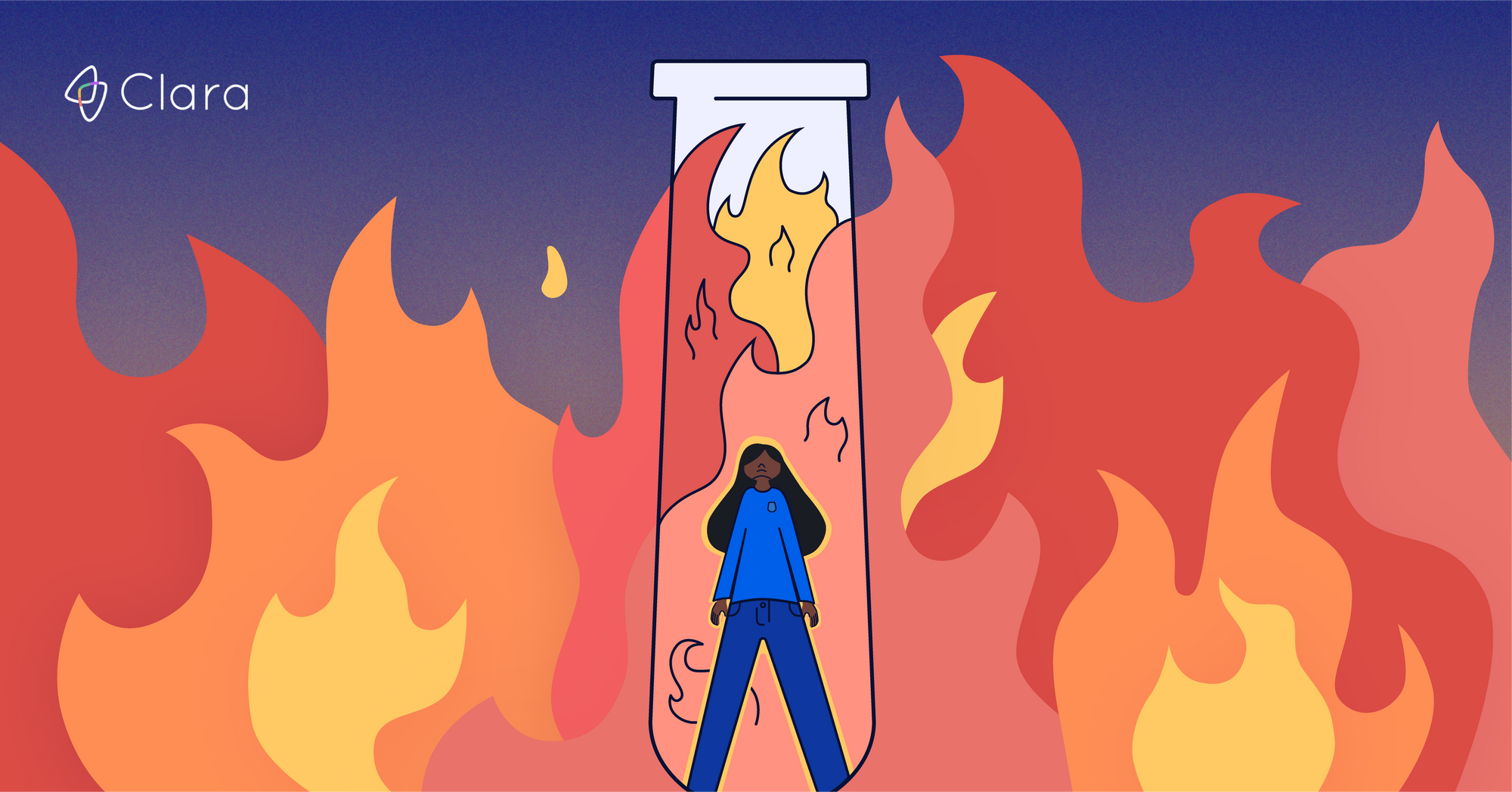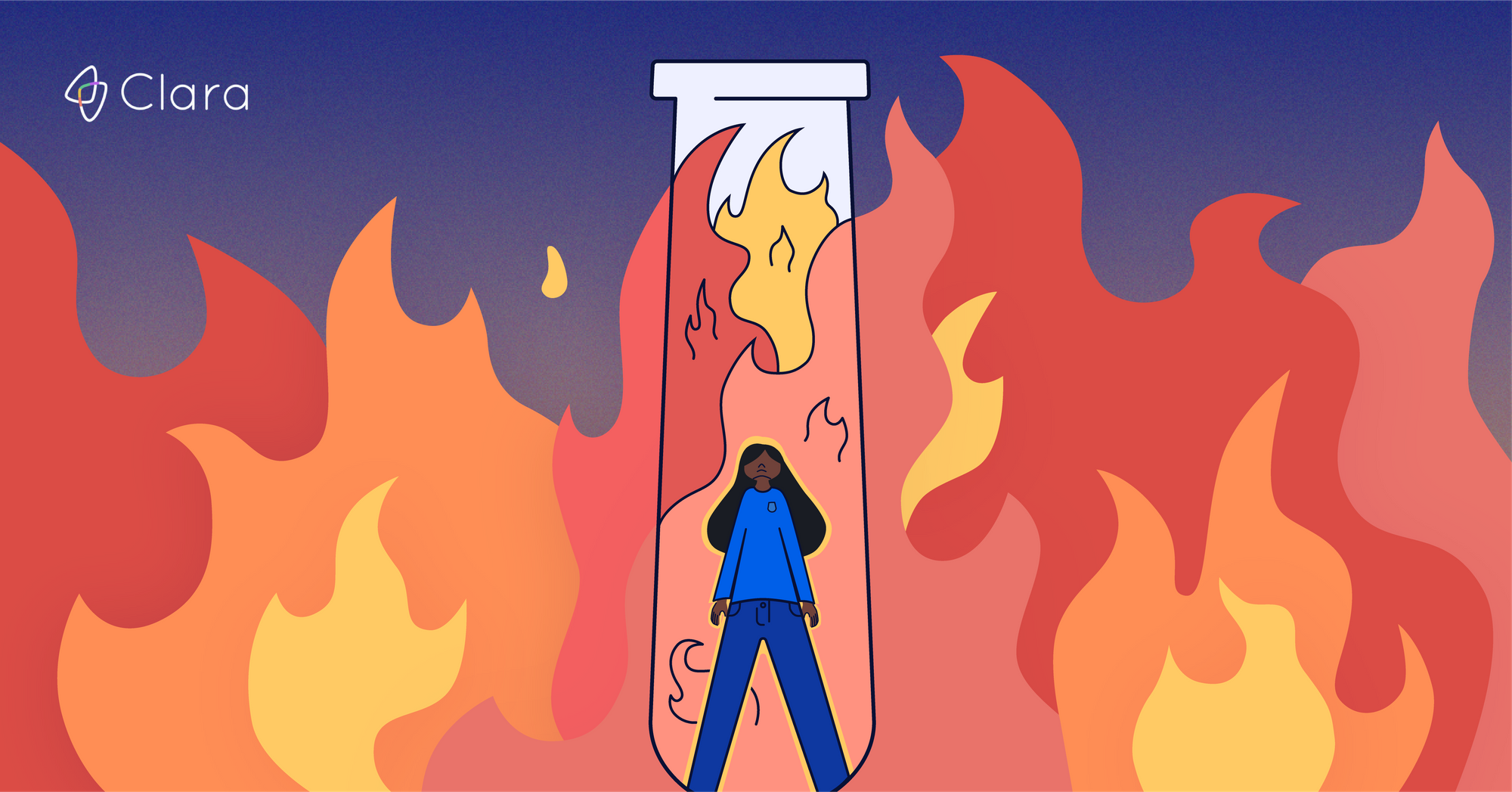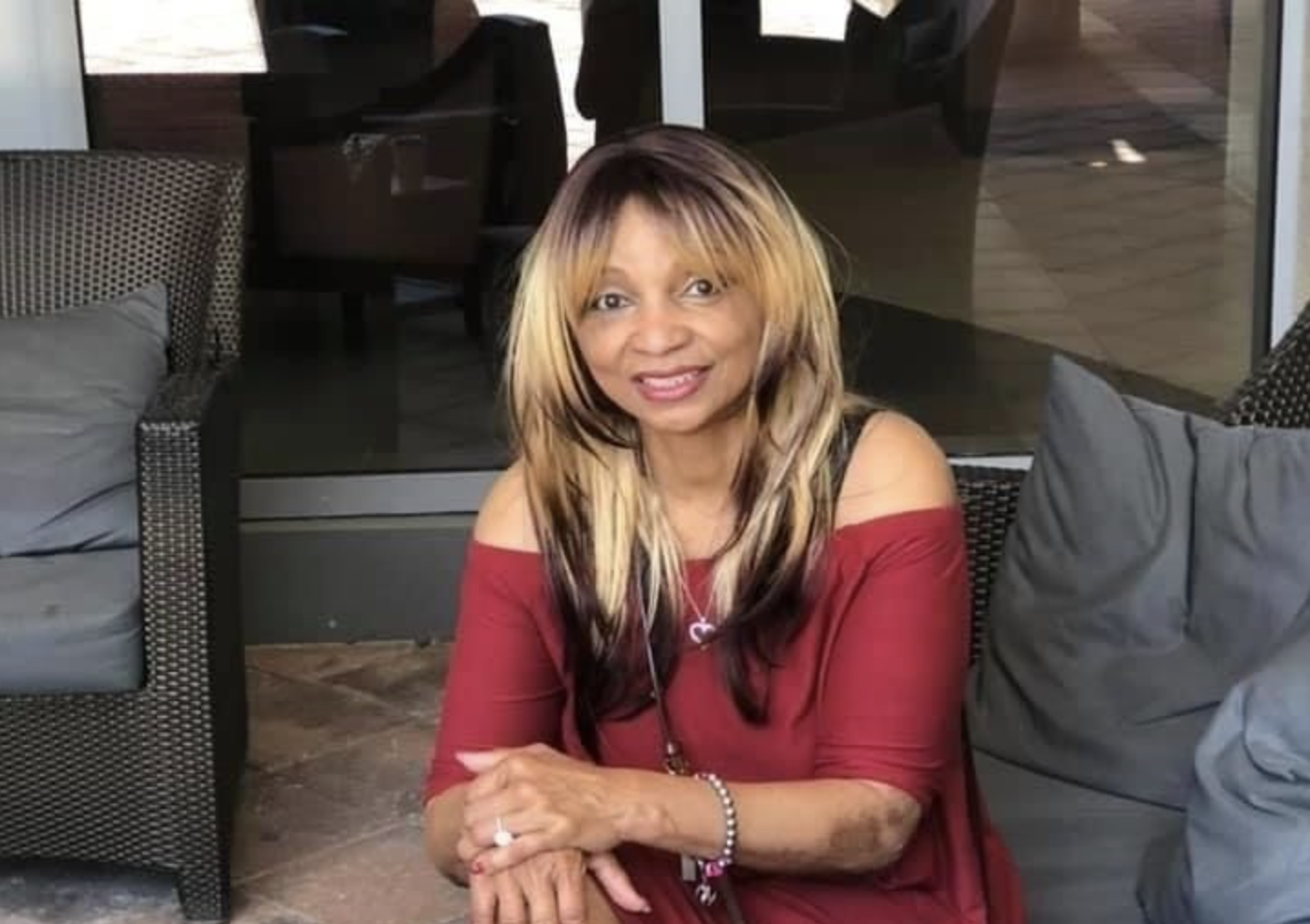Our latest Patients Have Power episode is called "Everybody will tell you, you should be eating kale." (You can subscribe to the podcast at Apple Podcasts, or listen to it with the media player above).
In this episode, Aaron Jun, Clara's Head of Growth, and I chat about the exciting new therapies going into trials that focus on methods beyond drugs, such as stem cell and fecal transplants, and diet and lifestyle changes. Also: How stem cells are like Minions, the struggles of finding the right condiments in the grocery store, and a fierce debate about Aaron's vegetarianism.
Below is a transcript of the episode for your reading pleasure!
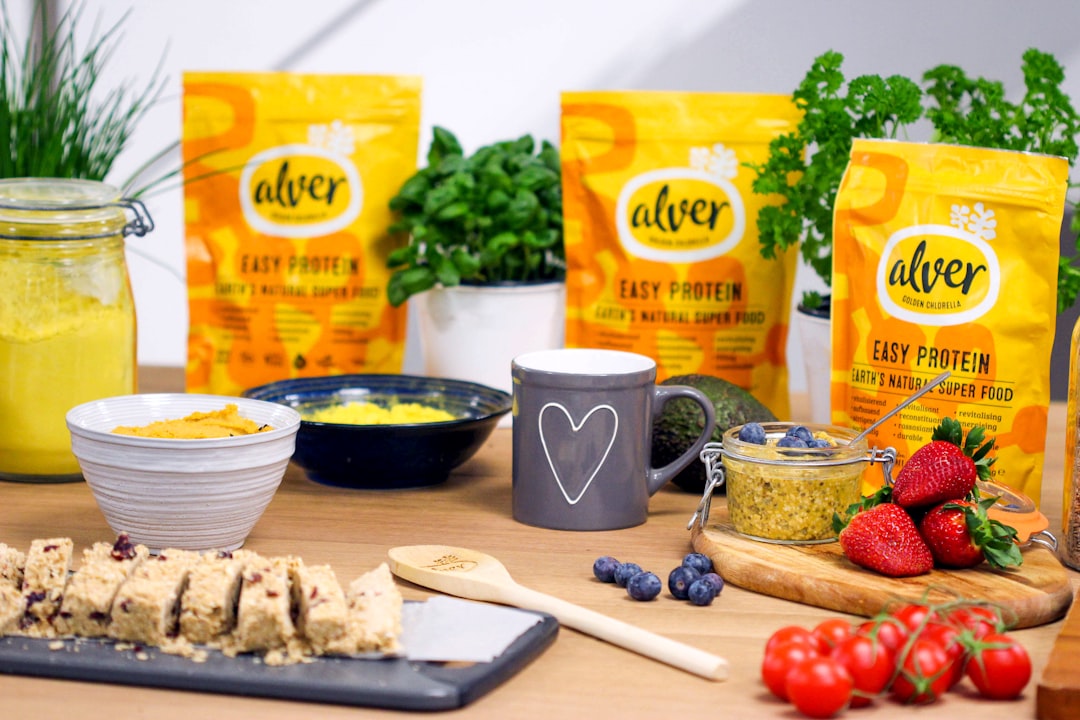
Lilly Stairs: Hello everyone, and welcome to episode nine of the patient's have power podcast. Lucky for you, or not so lucky, we have Aaron with us today.
Aaron Jun: Hello, hello!
Lilly Stairs: Today we're going to be talking beyond drugs. We've seen so many biotech's and pharma companies, over the past couple of years, start to explore the idea of treating patients beyond drug therapy.
So this can be anything from diet, to stem cell transplants, to fecal transplants. We're starting to see it all. And we're having a lot of patients who are coming into Clara's platform, and are actually requesting studies that maybe are for diet or for lifestyle changes. And so today we wanted to take some time to talk about what some of those options look like, and dig in to how they are helping or not helping patients.
Aaron Jun: Yeah. I think it's very interesting. We definitely got an influx of patients coming in whenever there's a new story out about cool new therapy that doesn't necessarily take... It's not that drugs are old hat, obviously, because many new drugs are coming to market and a lot of them are quite amazing. But it's been really interesting to see the positive response from a lot of patients who see things like "Hey a diet change might help, or a lifestyle change might help mitigate some of your symptoms."
So yeah, really excited to dig in as someone who's never really had to quite think much about this luckily. It's been really fascinating to see, and we'll get in to some of those details.
Lilly Stairs: Yeah, yeah. Absolutely. One thing I think is important to call out is that a lot of these therapies are actually meant to be done as a supplement beside some of the medications that you're already taking.
For some of them of course, it is a full overhaul, and maybe you're just doing the diet. But for a lot of them, and especially for some of these trials, you're actually able to stay on your current treatment plan and then add a supplement, which I think is wonderful. So let's dig in, shall we?
Aaron Jun: Yeah, let's do it.
Lilly Stairs: Okay. One thing that I wanted to kick it off with is this idea of stem cells. We've seen our advisor Chanel, known as The Tube Fed Wife.
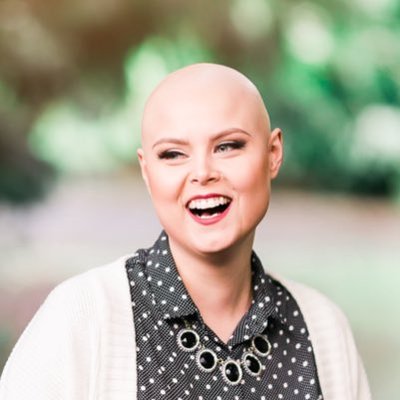
She's really chronicled her journey with the full stem transplant, and she's doing really well right now, and it's been really exciting to watch her journey.
Stem cell therapy has been demonstrated to induce profound healing activity in animals with various forms of autoimmune disorders. Besides healing damaged tissues, stem cells have the unique ability to modulate the immune system so as to shut off pathological responses while preserving its ability to fight off disease. Stem cells and specifically, mesenchymal stem cells home to inflamed tissue and start producing anti-inflammatory agents. These mediators act locally and do not suppress the immune response of the patient’s whole body. Additionally, mesenchymal stem cells induce the production of T regulatory cells, a type of immune cell whose function is to protect the body against immunological self-attack.
Lilly Stairs: And we're starting to see more treatments pop up or clinical trials pop up in the stem cell space, and not necessarily a full stem cell transplant but this idea of stem cell therapy over time.
Aaron Jun: Right.
Lilly Stairs: I believe there's an early phase one trial for rheumatoid arthritis, and we're starting to see it in a few of the autoimmune diseases.
Aaron Jun: Yeah, this is one that's gotten a lot of patients excited from what I've seen. Stem cell transplants have been kind of used in oncology mostly right?
Lilly Stairs: Yup. Typically in cancer, and it's been very successful in the cancer space.
Aaron Jun: Yeah. It's one of the first trials that I've had exposure to because I read Chanel's story when we were first launching Clara together, and it really gave me great insight in to just how powerful some of these trials could be in these new exploratairy ... exploratory, excuse me. Is that even a word, exploratory?
Lilly Stairs: Definitely. No, yeah that's definitely a word. Exploratairy is not a word.
Aaron Jun: Exploritary is not a word but exploratory is a word. We'll edit this out.
Editor's note: We made an executive decision not to edit this out.
Lilly Stairs: We'll figure it out later. We'll Google it.
Aaron Jun: Yeah.
Lilly Stairs: Yeah.
Aaron Jun: It was just really marvelous to see just what an impact it made on her life, and we'll link to the story in our show notes. But yeah, stem cells are definitely becoming more and more of a path that pharmaceutical companies seem to be exploring, and it's very cool to see.
Lilly Stairs: Well, and you know it makes sense because we're actually starting to see a lot of research in general that leveraging both treatment for cancer and autoimmune diseases. Because what's happening in cancer is the reverse of what's happening in autoimmune diseases. In an autoimmune disease you're attacking yourself. You're attacking those healthy cells. But in cancer your body is not attacking enough of the cells...
Aaron Jun: Right.
Lilly Stairs: Because you've got this cancer and you can't get rid of it. So being able to leverage the immune system, and turn those ... What's the word I'm looking for? Turning those...
Aaron Jun: Cells.
Lilly Stairs: Cells, levers... on and off to figure out what they're supposed to do.
Aaron Jun: Full disclosure, we're not medical professionals.
Lilly Stairs: I'm envisioning little minions in the body.

Aaron Jun: Right. So you have some minions that are confused...
Lilly Stairs: Yeah.
Aaron Jun: And then you take some of the other minions, and you bring them in to where the minions are confused. That's my understanding.
Lilly Stairs: And you teach them how to ...
Aaron Jun: Right, and they teach each other because they're minions and they all speak the same language.
Lilly Stairs: This is not medical advice. This is not a science lesson. We shouldn't be allowed to talk this deep in to science. Anyway, so stem cells, a really cool therapy and something we're seeing pop up in clinical trials more and more, so definitely keep an eye on that.
Lilly Stairs: So the next one I want to speak to is also a transplant, a different type of transplant, fecal transplants.
Human waste has long been thought of as just that: everything the body doesn’t want or need. But new research is showing that feces may contain valuable organisms that can actually treat disease. Recently, fecal microbiota transplantation, aimed at modifying the composition of gut microbiota to overcome dysbiosis, has become a potential alternative therapeutic option for IBD.
Aaron Jun: Right.
Lilly Stairs: Which are really becoming this all the rage topic in the IBD space. We've seen fecal transplants work exceedingly well for C-Diff. So ninety percent of C-Diff infections that have been treated with the fecal transplants, go away, and especially the ones that are resistant to antibiotics.
In a new paper published in JAMA, researchers led by Dr. Dina Kao, a gastroenterologist at the University of Alberta in Canada, and her colleagues report that fecal matter manufactured into a capsule was no worse than fecal matter transplanted by colonoscopy. Both procedures successfully reduced risk of repeated C. difficile infections by more than 90%. C. difficile (C. diff) infections can be caused by bacteria that are resistant to many antibiotics.
Lilly Stairs: And so this is a huge step forward for us in terms of treating C-Diff, and so now we're trying to see if we can do this in IBD.
Aaron Jun: Right. This actually goes back quite a long time, right?
Lilly Stairs: Yeah. So when we were doing some research ahead of time for this podcast, I had known about fecal transplants and kind of the hot topic, the recent stuff that's come out, but I had no idea that people were actually doing fecal transplants all the way back in China during the fourth century. Little bit different and less advanced than the way that we do it today.
Aaron Jun: Yeah. How is it different? Were different techniques used?
Lilly Stairs: Different techniques were used. So it was actually by mouth that these fecal transplants were done, which doesn't sound quite so pleasant. It was used to treat food poisoning back then. But now they do it through more of a colonoscopy type method.
Aaron Jun: Right.
Lilly Stairs: And so you're taking the fecal matter of a human who is more healthy, maybe a family member that doesn't have any autoimmune diseases, and you're actually transplanting that in to a patient.
Fecal transplants are part of the burgeoning field of research involving the microbiome: the living universe of microbes, including bacteria, that live on and in the body. Unlike their disease-causing counterparts, these microbes work to improve human health. Certain bacteria, for example, are linked to lower rates of conditions like allergies, asthma, obesity and even some types of mental illnesses.
Lilly Stairs: And so what's really interesting is that this is playing on this whole idea of the microbiome, which is another huge space that researchers are getting involved in. The microbiome, and these microbes that live in our gut, and how that impacts autoimmune diseases.
Aaron Jun: Yeah.
Lilly Stairs: So definitely keep an eye out for treatments around the microbiome, and especially these fecal transplants because that's certainly something in trials now, and it will be interesting to see what happens.
Aaron Jun: Yeah. It's really interesting to see this kind of trend where even the largest pharmaceutical companies are going back to things that have just kind of been around a while. Right?
Lilly Stairs: Yeah.
Aaron Jun: Like this fecal transplant thing or, as we're about to talk about, diet and life style changes, and how those things can impact a patient's symptoms. It's really interesting to see some really hard science getting applied to the study of these ancient techniques, or older techniques.
Lilly Stairs: It is. It's funny because on my way to the Crohn's and Colitis congress back in January, it was out in Vegas, I happen to be sitting next to a pharma exec. We started talking and he was telling me how his company is actually working to leverage some of those ancient Chinese herbal medicines.
Aaron Jun: Interesting.
Lilly Stairs: And bringing them in to the pharmaceutical realm that we know and love today to try to develop some new treatments there. So it's certainly something that's happening, and so keep your eye out. But I know you just mentioned diet and life style, and I'd love to transition in to talking a little bit more about that because, wow, there is a lot happening in that space.
Aaron Jun: Yeah. A fair bit.

Lilly Stairs: A fair bit. So we hear a lot about a few different types of diets, actually not even a few. I feel like there's a million different types of diets now. There's Paleo, there's Vegan, there's ...
Aaron Jun: I'm mostly Vegetarian.
Lilly Stairs: You're not mostly Vegetarian. Just as a side bar here, Aaron...
Aaron Jun: Eats mostly Vegetarian.
Lilly Stairs: No he doesn't. So he says that he eats mostly Vegetarian, but we order lunch every day, and almost every day he's like, “Oh should I get the chicken, should I get the beef, should I get the lamb.” He's like, “I'm a Vegetarian, but no I'm going to get the lamb today.” It's pretty much every day. He's lying to himself and it's fine. It's fine to consume meat, just be honest.
Aaron Jun: One meal out of four, every single day, has meat. That's still mostly Vegetarian.
Lilly Stairs: That's false.
Aaron Jun: But I think you have a lot more thought behind your diets, right?
Lilly Stairs: Oh, it has been a work in progress for many years. Much like many patients that I know and work with. A few of the ones that we're actually seeing going in to trials right now are the Specific Carbohydrate Diet and the Mediterranean Diet.
And there's actually a study that's taking these two diets and putting them head-to-head] right now to see what the effects are.
Aaron Jun: Interesting.
Lilly Stairs: Yeah. To be honest with you, they're fairly similar diets.
Aaron Jun: What's the Carbohydrate Diet? Is that just all carbs all the time?

Lilly Stairs: I was really confused about that.
Aaron Jun: Yeah.
Lilly Stairs: That's what I thought initially. It is not all carbs all the time. That sounds like a lovely diet to me.
The Specific Carbohydrate Diet mainly involves foods that early man ate before agriculture began, such as meat, fish, nuts, low-sugar fruits, eggs, and vegetables.
Aaron Jun: Yeah. I'm out.
Lilly Stairs: Gluten free pasta all day...No. So it's meant to be “biologically correct”, so it's this idea that you're going back to the foods that early man ate.
Aaron Jun: Sure.
Lilly Stairs: Man and women, ate before agriculture began. So you're focusing on low sugar fruits, vegetables, poultry, and actually reducing starches, grains, pasta, legumes, breads. And so it's confusing, because actually you're cutting out a lot of the carbs.
Aaron Jun: Yeah, less fun.
Lilly Stairs: Yeah, so trying to get rid of those complex sugars. Then we look at the Mediterranean Diet and, again similar, it's this big focus on vegetables, fruits, nuts, seeds, legumes, potatoes, and whole grains are included in that.
The Mediterranean Diet, on the other hand, recommends eating foods like vegetables, fruits, nuts, legumes, potatoes, and rarely eating red meat, refined grains, and highly processed foods.
And then you're supposed to eat, in moderation, poultry, and eggs, and dairy, and rarely red meat. Sugar is really off that list.
Aaron Jun: Yeah.
Lilly Stairs: So you really shouldn't be doing sweetened beverages, added sugars. And you know what, I'm going to go out on a limb here and say that most of us shouldn't be doing that.
Aaron Jun: The sugars?

Lilly Stairs: The sugars, yeah. I'm not trying to tell people how they should eat, but I'm pretty sure across the board sugar is not good for anyone.
Aaron Jun: Yeah.
Lilly Stairs: Patient or not patient. So anyways, yeah. So there's actually a study right now in Crohn's disease that's putting the Mediterranean Diet and the specific Carbohydrate Diet head-to-head.
Aaron Jun: That's so interesting.
Lilly Stairs: Yeah, and there are others. I mean we're seeing anti-inflammatory diets, there's a psoriasis food sensitivity study, and there's even an exercise study too.
Aaron Jun: Oh with FitBit. So all of these are on Clara, so we'll just link to these in show notes again. But yeah, it's super cool to see all this study being done because I do think basically everyone can optimize their diets a little more than we do.
I know for a fact that when I'm traveling or on the road, and I'm just eating whatever I can get my hands on, and I'm not great about moderation, I definitely wake up just feeling groggy, and weird, and I have these afternoon crashes if I have too much sugar.
Lilly Stairs: Yeah.
Aaron Jun: So it's definitely a field worth studying, and I know you've been doing a ton of work on your own diet with a health coach.
Lilly Stairs: Yes. Yeah, so I've been working on this. And I'll put a disclaimer on here that I think it's so important that we're talking about all the different components of how to treat patients, and I'm a firm believer in this mix of conventional medicine and complimentary medicine.
So my biologics I have been on have put me in to remission, and I am so thankful for that, but I've learned that there is a lot more that I can be doing on top of that medication to help control my diseases that I'm living with.
Aaron Jun: Sure.
Lilly Stairs: And so I have actually had the opportunity to work with something called Mymee.
Aaron Jun: Mymee?
Lilly Stairs: Mymee, yes, with Mette her name is. She's the founder of the company. And she is, I think, one of the most brilliant people I've ever had the opportunity to interact with.
Aaron Jun: You don't stop talking about her once you get started. I don't know if you've noticed, but it's like thirty minutes of productivity every day just lost.
Lilly Stairs: Aaron and the team at Clara have had to hear about...
Aaron Jun: Mostly Aaron.
Lilly Stairs: All the tinkering that I've been doing with my diet. Mette and I have a call once a week. And so basically what happens is I track my food all day, so I take a picture of the food, I track my water intake.
Aaron Jun: Is this through like an app, or how are you doing it?
Lilly Stairs: This is through an app and it's super easy. I just take a picture, I type in what I'm eating, I add it in. It's different for everyone what they track.
So Mette was like, "Lilly you drink literally no water all day." I'm like, "Yeah, I know." There have been days where I would go and just have a cup of coffee, and not have water all day.
Aaron Jun: Yeah, which is insane...
Lilly Stairs: I know. I know.
Aaron Jun: Because you have this giant thermos thing next to you all the time.
Lilly Stairs: Well now I do.
Aaron Jun: I just assumed.
Lilly Stairs: Now I do.
Aaron Jun: You did before too.
Lilly Stairs: So I was a really chronically bad water drinker. So there are just these things that now that I'm tracking them, I'm more aware of. And so we've been able to identify, and I started this back in November I believe. Late October, beginning of November, and I made it through the holidays with it.
And I will tell you, by the holidays I had cut out gluten, and dairy, and soy. We knew those were three major triggers. Those we pulled out right away.
Aaron Jun: Pretty common ones.
Lilly Stairs: Oh, very common.
Aaron Jun: Yeah.
Lilly Stairs: It tends to be that those are just very highly inflammatory foods. And so I cut them out and I was like, "Oh you know what, I can have some of it on Christmas and I'll be fine."
And I did, and I felt absolutely horrible. I think on Christmas Eve I did that and I was regretting it, and so the next day I said, "You know what? I'm sticking to my diet. I'm bringing my own gluten free pasta, I'm bringing my own snacks, I'm making my own Christmas cookies for Christmas Day, and I'm just going to eat them." And I did. I made some really great almond spritz cookies.
Aaron Jun: I'm sure you did.
Lilly Stairs: They were amazing. I'm quite the chef. So anyways we identified all of these triggers, and now not only have I identified food triggers, we're kind of toying with supplements. I'm actually starting Epsom salt baths because I need to get magnesium.

Aaron Jun: How does that work?
Lilly Stairs: How does an Epsom salt bath work?
Aaron Jun: I don't know.
Lilly Stairs: It's pretty common.
Aaron Jun: Okay.
Lilly Stairs: It's cut and dry.
Aaron Jun: Aright, sorry.
Lilly Stairs: You draw a bath and then you pour Epsom salt in to it.
Aaron Jun: I thought this was a safe space. Sorry, go on. So magnesium, through a bath.
Lilly Stairs: Yeah. So anyways, I mean there are just all these things and I know it's really been a different experience for everyone.
Like Mette, I think she has something like seven autoimmune diseases, she's got a couple, and she's put them in to remission for quite a while from all of the different ... She's figured out what her exact triggers are. She's cut out chicken because she found chicken was an issue for her.
Aaron Jun: Interesting.
Lilly Stairs: So it's so individual. She was telling me about another woman who had to cut out kale.
Aaron Jun: Just kale?
Lilly Stairs: Just kale, I don't know if there were other things on the list. But what I think is really fascinating about that is everybody is like "Oh kale!"
Aaron Jun: Yeah, well it's a super food.
Lilly Stairs: Yes, it's a super food, but not for everyone.
Aaron Jun: Right.
Lilly Stairs: You know why, because this woman was getting symptoms from her kale smoothie she was having every morning.
Aaron Jun: How interesting.
Lilly Stairs: And so everybody will tell you, "Oh you should be eating kale."
Aaron Jun: Yeah.
Lilly Stairs: "You should be eating kale." But it's like, no.
Aaron Jun: I've literally told people that.
Lilly Stairs: You have, and you can't. So, it's so different for everyone. I think that this is something IBD patients experience a lot because I know that people will be like, "Oh why don't you just eat healthy? Eat a salad."
Aaron Jun: Right.
Lilly Stairs: And a lot of IBD patients can't eat a salad.
Aaron Jun: Well we just had a side salad yesterday that was just covered in feta cheese.
Lilly Stairs: Oh yeah. I said no dairy on the salad.
Aaron Jun: Yeah.
Lilly Stairs: The order comes in, feta cheese all over.
Aaron Jun: Or like the dressing?
Lilly Stairs: So Aaron ate my salad.
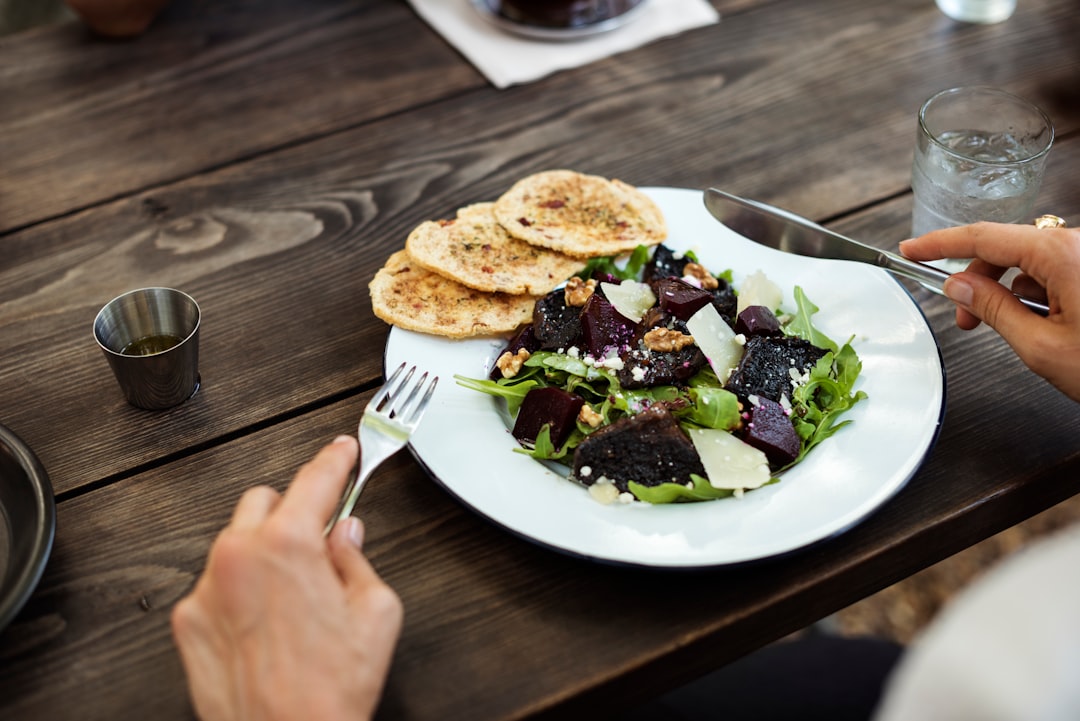
Aaron Jun: Yeah, I ate everyone's salad.
Lilly Stairs: Aaron benefited from that, yeah.
Aaron Jun: It was great. Good day. It was a good day.
Lilly Stairs: But anyway, so it's been really interesting for me because we are looking ... In the biotech and pharma industry now, we are really looking at personalized medicine.
What is it that works for the individual person when it comes to treatments? And what I'm really excited about, is that we're also starting to see that on the diet and life style side. So I don't think you can just tell any one person, "Okay you should do a Paleo diet."
Aaron Jun: Right.
Lilly Stairs: "You should do a Vegan diet." Because a Vegan diet's not going to work for every arthritis patient.
Aaron Jun: Right.
Lilly Stairs: And a Paleo Diet's not going to work for every psoriasis patient. It's truly individual. And so for me to be able to track exactly what my triggers are, when I'm getting joint pain based on what I eat, and figuring out, and removing those from my life I have a customized diet that is working for me.
And I think that is the trend we are going to increasingly see.
Aaron Jun: Yeah.
Lilly Stairs: Both in medicine and then in some of these complimentary supplements, if you will, for patients.
Aaron Jun: Yeah. I mean it's been a fascinating journey just to be on the side lines for. I think we talked last time about going to the grocery store together, and you just like picking up every single bottle in the salad dressing aisle or something.
Lilly Stairs: I don't think we talked about this.
Aaron Jun: No.
Lilly Stairs: This happened after we did our last podcast.
Aaron Jun: Did it?
Lilly Stairs: Yeah.
Aaron Jun: Oh, yeah. So we were at the grocery store because we were getting sandwiches for lunch, and they were getting delivered and Lilly basically said "Don't put anything on my sandwich. Don't put any sort of sauce on it." Because she didn't know what was going in to these sauces.
Lilly Stairs: You can't trust the sauces.
Aaron Jun: No, you really can't.
Lilly Stairs: You can not trust the sauces. And you know what, soy is a trigger for me and soy is in freaking everything.
Aaron Jun: Right, so we're in the condiment isle I guess.
Lilly Stairs: Yeah, the condiment aisle.
Aaron Jun: There's like mayo, and we're looking at Italian dressing and every single one is using soy oil.
Lilly Stairs: Soybean oil. Yeah.
Aaron Jun: Yeah right, which I had no idea was really even a thing.
Lilly Stairs: How many bottles do you think I picked up that I couldn't eat?
Aaron Jun: We picked up every single one. Every single brand, we picked up every single offering. So, and it's a pretty big grocery store, thirty-five. We definitely spent half an hour.
Lilly Stairs: We spent a long time.
Aaron Jun: In that aisle.
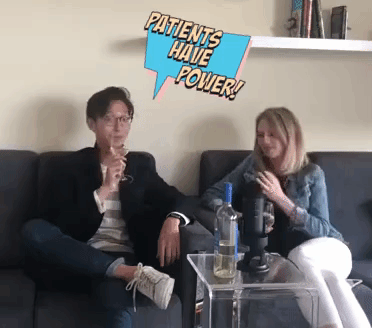
Lilly Stairs: And that's frustrating right? That is my day to day where it's very frustrating to have to do that, but I've learned ways to navigate it. And perhaps, at some point, we can do a podcast where we give tips and tricks for how to navigate when you've made dietary changes because it's not all easy breezy in terms of the changes I've had to do.
Aaron Jun: Oh, definitely. Oh, you brought a loaf of bread to work today.
Lilly Stairs: I did.
Aaron Jun: I'm not sure what that's about, but it's a big loaf of bread.
Lilly Stairs: Yeah, it's a gluten free vegan sourdough bread.
Aaron Jun: What's really cool is you see all these brands coming up now that are getting started to address this, and because of that you've seen a lot of the major companies begin to address that and say, "Hey we're Nestle and now we need to offer something that's gluten free for our community."
Lilly Stairs: It's a lot better than it was and so it shouldn't be discouraging. There's so many resources out there. It can feel overwhelming to start this process. And it's not just food right, it's the supplements, and people be like take probiotics, take vitamin d, take da-da-da you know? I don't even know. Supplements you can't even pronounce.
Aaron Jun: Right.
Lilly Stairs: That can be a lot, so take it step by step. But something like this Mymee, this personal health coach, and I'd be reminiscent if I didn't put a shameless plug out there that they are recruiting for a lupus trial right now.
Aaron Jun: Oh, right. That's anyone with lupus and a phone can see if they qualify for like four months of coaching for free right?
Lilly Stairs: And you can stay on your current medication.
Aaron Jun: Yeah, your own medication. You don't have to go anywhere, it's all remote, it's once a week, and you get the same treatment that Lilly gets, which I know the calls are like an hour long.
Lilly Stairs: Yeah, it's been an incredible experience for me. And I personally, will not promote anything that I don't believe in.
Aaron Jun: Yeah.
Lilly Stairs: And I really believe in this, so that's why I'm putting this shameless plug out there.
Aaron Jun: You believe in it enough that we couldn't have wine together for like a week.
Lilly Stairs: Oh God, it was terrible. I will say that's the thing I'm struggling with the most.
Aaron Jun: That got dark.
Lilly Stairs: Mette made me cut out alcohol for a week. Mette, I'm calling you out here, I know you're helping me but ...

Aaron Jun: Well you followed through.
Lilly Stairs: I followed through.
Aaron Jun: I was impressed.
Lilly Stairs: I followed through. And you know what, I made it. I love my wine, we're still going to find a way. Mette's like we're going to find a way to make sure that you can still have your drinks because God knows I need it after some days.
Aaron Jun: And you're a young person in a new city, and it's nice weather most of the time, and wine's great.
Lilly Stairs: Yeah. Anyways, so enough about me. I think that the moral of the story here is there's a lot of exciting up and coming research.
Aaron Jun: Yeah.
Lilly Stairs: And whether that be drugs, biologics, diet, life style, supplements, exercise, stem cell, fecal transplants, there's so much happening.
And we encourage you to just keep an eye out, to see what could be a fit for you. We know that sometimes you'll be on a treatment and not totally fully one hundred percent better yet. Maybe you're at eighty percent and maybe diet, or supplements, or one of these other treatments could get you to one hundred percent. And so we just wanted to call some attention to that today.
Lilly Stairs: We will absolutely be back next week. Aaron won't be here.
Aaron Jun: I'll be here.
Lilly Stairs: You'll be here.
Aaron Jun: Editing your podcast, excuse me.
Lilly Stairs: But we'll have lovely patient guest next week, and then you'll see Aaron the week after that.
Aaron Jun: It's going to be great.
Lilly Stairs: Maybe. We'll see how good it is, I don't know. Alright, well anyways, we're going to sign off for now. We will see you next week.
Aaron Jun: Alright, see you next week. Well, I won't apparently.



